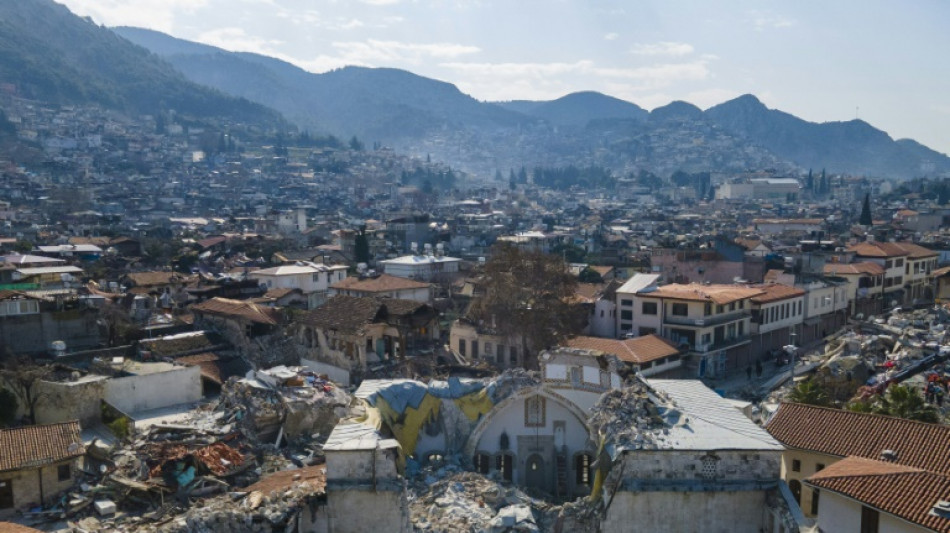
-
 Stocks diverge as rate hopes rise, AI fears ease
Stocks diverge as rate hopes rise, AI fears ease
-
Man City players face Christmas weigh-in as Guardiola issues 'fatty' warning

-
 German Christmas markets hit by flood of fake news
German Christmas markets hit by flood of fake news
-
Liverpool fear Isak has broken leg: reports

-
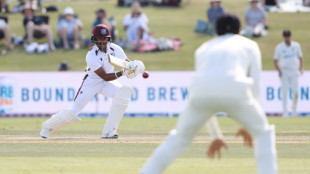 West Indies captain says he 'let the team down' in New Zealand Tests
West Indies captain says he 'let the team down' in New Zealand Tests
-
Thailand says Cambodia agrees to border talks after ASEAN meet

-
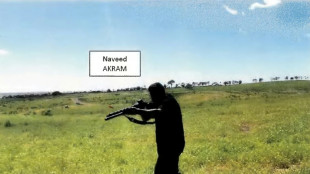 Alleged Bondi shooters conducted 'tactical' training in countryside, Australian police say
Alleged Bondi shooters conducted 'tactical' training in countryside, Australian police say
-
Swiss court to hear landmark climate case against cement giant
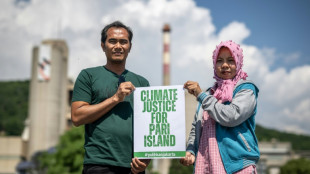
-
 Knicks' Brunson scores 47, Bulls edge Hawks epic
Knicks' Brunson scores 47, Bulls edge Hawks epic
-
Global nuclear arms control under pressure in 2026

-
 Asian markets rally with Wall St as rate hopes rise, AI fears ease
Asian markets rally with Wall St as rate hopes rise, AI fears ease
-
Jailed Malaysian ex-PM Najib loses bid for house arrest

-
 Banned film exposes Hong Kong's censorship trend, director says
Banned film exposes Hong Kong's censorship trend, director says
-
Duffy, Patel force West Indies collapse as NZ close in on Test series win

-
 Australian state pushes tough gun laws, 'terror symbols' ban after shooting
Australian state pushes tough gun laws, 'terror symbols' ban after shooting
-
A night out on the town during Nigeria's 'Detty December'

-
 US in 'pursuit' of third oil tanker in Caribbean: official
US in 'pursuit' of third oil tanker in Caribbean: official
-
CO2 soon to be buried under North Sea oil platform

-
 Steelers edge Lions as Bears, 49ers reach playoffs
Steelers edge Lions as Bears, 49ers reach playoffs
-
India's Bollywood counts costs as star fees squeeze profits

-
 McCullum admits errors in Ashes preparations as England look to salvage pride
McCullum admits errors in Ashes preparations as England look to salvage pride
-
Pets, pedis and peppermints: When the diva is a donkey

-
 'A den of bandits': Rwanda closes thousands of evangelical churches
'A den of bandits': Rwanda closes thousands of evangelical churches
-
Southeast Asia bloc meets to press Thailand, Cambodia on truce

-
 As US battles China on AI, some companies choose Chinese
As US battles China on AI, some companies choose Chinese
-
AI resurrections of dead celebrities amuse and rankle

-
 EON Resources Inc. Reports Management and Directors Buy an Additional 282,000 Shares of EON Class A Common Stock for a Total of 1,561,000 Shares Bought in 2025 and a Total Ownership of Over 5 million Shares
EON Resources Inc. Reports Management and Directors Buy an Additional 282,000 Shares of EON Class A Common Stock for a Total of 1,561,000 Shares Bought in 2025 and a Total Ownership of Over 5 million Shares
-
Heirs Energies Agrees $750m Afreximbank Financing to Drive Long-Term Growth

-
 Black Book Poll: "Governed AI" Emerges as the Deciding Factor in 2026 NHS Procurement
Black Book Poll: "Governed AI" Emerges as the Deciding Factor in 2026 NHS Procurement
-
Hemogenyx Pharmaceuticals PLC Announces Update on Admission of Shares

-
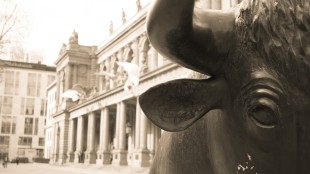 Pantheon Resources PLC Announces Shareholder Letter and Corporate Update on Dubhe-1
Pantheon Resources PLC Announces Shareholder Letter and Corporate Update on Dubhe-1
-
Tocvan Begins Trenching Material for the Pilot Mine and Pushes Ahead With Infrastructure Development

-
 Steelers receiver Metcalf strikes Lions fan
Steelers receiver Metcalf strikes Lions fan
-
Morocco coach 'taking no risks' with Hakimi fitness

-
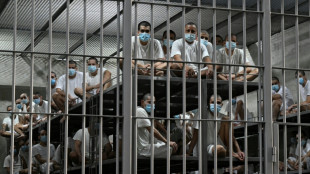 Gang members given hundreds-years-long sentences in El Salvador
Gang members given hundreds-years-long sentences in El Salvador
-
Chargers, Bills edge closer to playoff berths

-
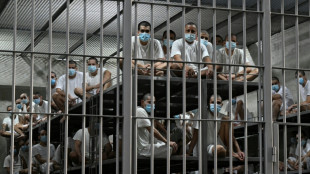 Gang members given hundred-years-long sentences in El Salvador
Gang members given hundred-years-long sentences in El Salvador
-
Hosts Morocco off to winning start at Africa Cup of Nations

-
 No jacket required for Emery as Villa dream of title glory
No jacket required for Emery as Villa dream of title glory
-
Amorim fears United captain Fernandes will be out 'a while'

-
 Nigerian government frees 130 kidnapped Catholic schoolchildren
Nigerian government frees 130 kidnapped Catholic schoolchildren
-
Captain Kane helps undermanned Bayern go nine clear in Bundesliga

-
 Captain Kane helps undermanned Bayern go nine clear
Captain Kane helps undermanned Bayern go nine clear
-
Rogers stars as Villa beat Man Utd to boost title bid

-
 Barca strengthen Liga lead at Villarreal, Atletico go third
Barca strengthen Liga lead at Villarreal, Atletico go third
-
Third 'Avatar' film soars to top in N. American box office debut

-
 Third day of Ukraine settlement talks to begin in Miami
Third day of Ukraine settlement talks to begin in Miami
-
Barcelona's Raphinha, Yamal strike in Villarreal win

-
 Macron, on UAE visit, announces new French aircraft carrier
Macron, on UAE visit, announces new French aircraft carrier
-
Barca's Raphinha, Yamal strike in Villarreal win


Once home to civilisations, fabled Antioch left in ruins
The smashed dome of the ancient mosque, considered to be Turkey's oldest, covers rubble that used to be a prayer hall.
Once a home to a myriad of civilisations, the southern city of Antakya lies in ruins after last Monday's 7.8-magnitude quake.
Fourteen centuries of history were ravaged in less than two minutes in Antakya, a fabled ancient Greek centre known throughout most of its history as Antioch.
Erected in AD 638, the Habib-i Neccar was "the first mosque built within modern-day Turkey's borders", according to the government's culture portal.
Only its walls have survived, leaving delicate yellow, red and blue paintings and calligraphy exposed to the winter sky.
"A bit of the Prophet Mohammed's beard was once preserved in a box" at the mosque, said Havva Pamukcu, a 50-year-old woman wearing a headscarf.
"I'm heartbroken," she said.
A few hundred metres away, a Greek Orthodox church erected in the 14th century -- and rebuilt in 1870 after another earthquake -- is also gone.
A white cross that once stood on its pointed roof now lies atop shattered walls and broken pieces of wood.
"All the walls have fallen. We're in despair," said Sertac Paul Bozkurt, a member of the council managing the church.
- 'Soil full of history' -
Antakya is in Hatay, a province tucked between the Mediterranean Sea and Turkey's border with Syria.
It was one of the worst affected by the earthquake and its aftershocks, which have claimed more than 35,000 lives across the region.
In the old city, several streets are still inaccessible, blocked by buildings flattened like pancakes and cars trapped under the debris.
Across more than two millennia, the city was home to Greek, Roman, Byzantine, Persian, Arab and Ottoman empires.
It was even placed under a French mandate between the end of the First World War and 1939, when the city became a part of modern-day Turkey.
A former general of Alexander the Great founded Antioch in 300 BC.
The city has suffered several earthquakes -- almost one every 100 years -- and is no stranger to rebuilding.
There were devastating quakes in 37 BC, 115 AD and 458 AD.
A quake in AD 526 is thought to have killed 250,000 people. In 1054, 10,000 are thought to have died.
"Antakya is the cradle of several historical events," said Hakan Mertkan, a doctoral student at the University of Bayreuth in Germany and author of a book on Antakya.
But it's also "a cradle of earthquakes, its soil full of history", he added.
- Crossroads of civilisations -
Turkey, like Syria, is on one of the world's most active fault lines.
But the region is also "at the centre of much of humanity's shared ancient history", said Aparna Tandon, senior programme leader at the International Centre for the Study of the Preservation and Restoration of Cultural Property.
The area impacted is home to six UNESCO World Heritage Sites.
Like Aleppo in Syria, Turkey's "crossroads of civilisations" was already "60 percent destroyed in 1822 after an earthquake", said Youmna Tabet, of the World Heritage Convention.
Fortunately, there does not seem to be as much damage at Turkey's other heritage sites, said Maria Liouliou, Tabet's colleague.
The fortress in Diyarbakir seems to have suffered only moderate damage, she said.
But the dangers are far from over now that the worst aftershocks have faded, experts warn.
What look like "simple cracks" to the "layman's eyes" can weaken a monument and cause it to collapse weeks later, said Samir Abdulac, who works at the International Council on Monuments and Sites, which seeks to protect historical places.
The experts AFP spoke to all insisted the "priority" was to save lives first. Safeguarding historical monuments must come later.
This was clear when AFP encountered a local official in Antakya, one of many families devastated by the disaster.
"I just lost my two brothers and a nephew. I am evacuating my wife and daughter today," said the official, who preferred to remain anonymous.
"I have no money, nothing. Frankly I have other priorities than cultural heritage."
D.Moore--AMWN



